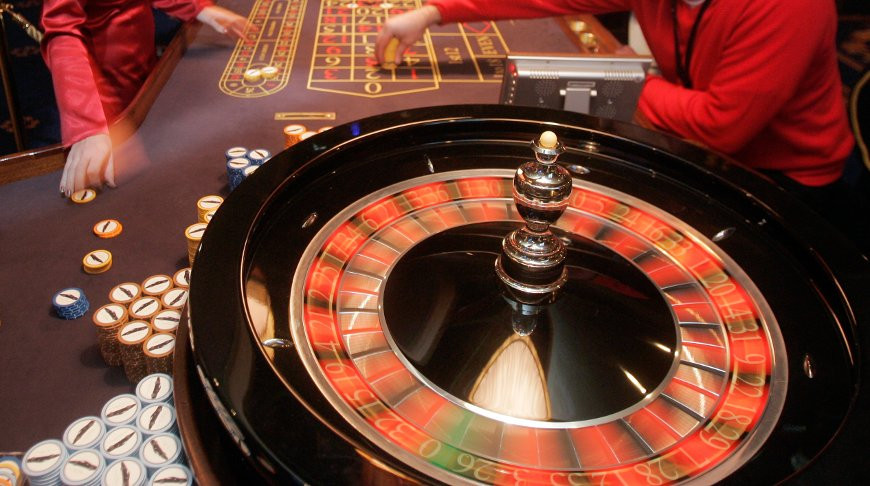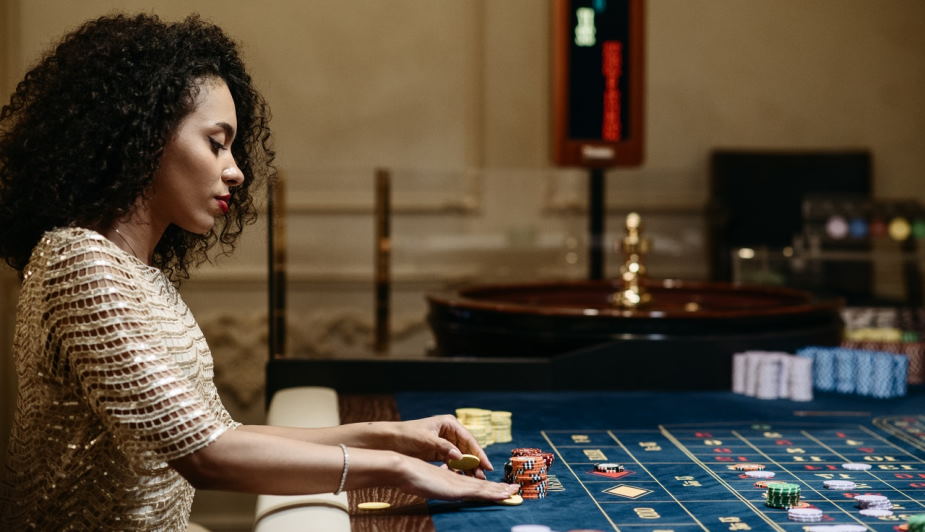A Roll of the Dice or a Chat with a Stranger?
In the stillness of a quiet evening, with the world behind closed doors and silence humming through empty rooms, many seek a connection. For some, this comes in the form of a phone call. For others, it’s a click – a small, powerful gesture that opens the door to a vibrant world. For users of 5gringos5.gr, it’s the virtual casino table that offers warmth, comfort, and stimulation where conversation often fails. Why do more people find spinning reels or virtual blackjack more fulfilling than speaking with another human? This article dives deep into that mystery.
The Comfort of Predictability: Games Don’t Judge
The Unspoken Language of Machines
Human conversations are unpredictable. They can drift, offend, bore, or leave one feeling more alone than before. A game, on the other hand, is a perfectly structured environment. It follows rules. It responds in kind. It’s consistent. For those dealing with social anxiety, depression, or emotional fatigue, this predictability becomes not just appealing – but vital.
Emotional Safety in Random Numbers
Games don’t roll their eyes. They don’t give unsolicited advice. They don’t ask you, “Why are you still single?” In a world where social interaction often involves risk – of being misunderstood, judged, or dismissed – games offer a neutral, accepting space.
Neuroscience Speaks: Dopamine Over Dialogues
Gambling and the Reward System
The human brain is hardwired for reward. Neuroscientific research shows that games of chance activate dopamine pathways – those linked to pleasure, motivation, and reinforcement. This same mechanism underlies addiction, yes, but also comfort, engagement, and satisfaction. A conversation with a friend might be uplifting – or it might not. A spin of the reels guarantees stimulation.
Unpredictable Reinforcement vs. Boring Talk
Slot machines and other casino games work on what psychologists call a variable-ratio reinforcement schedule. The brain is most excited when it doesn’t know if it will be rewarded. This uncertainty, paradoxically, fuels engagement and joy – something small talk cannot replicate.
You’re in Control: Mastering Your Environment
Unlike People, Games Let You Be the Boss
One of the major stressors in human interaction is the lack of control. Conversations are mutual. There are expectations, emotional labor, and sometimes uncomfortable outcomes. But when engaging in online gambling, the player is in full command. They can leave. Restart. Turn off the sound. Choose the game. Control their bets. No apologies needed.
Rejection-Free Zone
The fear of rejection haunts human connection. A game never says “no.” It welcomes you without pretense. There is no pressure to be witty, charming, or emotionally available. This frictionless interaction becomes especially appealing in moments of loneliness or vulnerability.
Loneliness Isn’t Just About Solitude – It’s About Safety
Virtual Spaces as Digital Cocoons
In today’s digital era, loneliness is not simply about being alone; it’s about feeling unsafe or unwelcome in social spaces. Online games – especially ones as dynamic and visually engaging as those at casino – offer a cocoon where players can relax and simply be.
Social Without the Stress
Many online casino platforms offer live dealer games or chat-enabled play. This creates the illusion (or reality) of company, without the emotional taxation of real conversation. One can enjoy presence without pressure – a potent antidote to modern loneliness.
A World Built for You: Customization as Identity
Avatars Over Real Faces
In real life, we are judged by appearance, voice, background, and circumstance. Online, especially in casino platforms that offer avatars and profiles, players create their own identity. This empowerment enhances confidence, autonomy, and pleasure – far more than most social encounters.
Escape, Not Denial
Psychologists note that escapism isn’t inherently negative. When done with awareness, it becomes a tool for healing, relaxation, and psychological reset. Playing online games offers a narrative – a space where users can reframe their role, become lucky, bold, and triumphant.
Ritual, Routine, and Solace: The Repetition That Heals
The Meditative Rhythm of Slots and Tables
Much like prayer beads or knitting, casino games often provide a soothing repetition. The ritualistic nature of betting, spinning, and waiting calms the mind. It’s not about the win – it’s about the rhythm.
Time as a Blanket, Not a Burden
In moments of despair or boredom, time stretches unbearably. Games shrink time. They fill the void, gently and colorfully, giving shape to hours that might otherwise be filled with pain or aimlessness.
Expert View: Why Therapists Don’t Always Recommend Talking
When Talk Therapy Isn’t the Answer
Not everyone finds relief in verbal processing. For trauma survivors, people with autism, introverts, or those from stoic cultural backgrounds, talking feels intrusive or ineffective. Games offer non-verbal emotional regulation – a way to feel something, safely, without having to explain it.
Gaming as “Co-Regulation”
Some therapists now explore gaming as a tool for co-regulation. It’s not about winning money – it’s about engaging the senses and providing a grounding experience. Especially during depressive episodes, this can be more helpful than a forced conversation.
Human Interaction in the Age of Noise
Social Media Burnout
People are overwhelmed. Notifications, shallow likes, endless scrolling – it creates the illusion of connection without depth. Compared to this digital noise, an online casino is pure: focused, goal-driven, immersive.
Gaming as Meaningful Isolation
Paradoxically, playing alone can feel more meaningful than being surrounded by people you don’t connect with. In a virtual game, there’s a purpose, a feedback loop, a moment-to-moment meaning.
The Spiritual Element: Modern-Day Pilgrimage?
Seeking Fortune as Seeking Faith
Is it possible that gambling isn’t just escapism – but a form of seeking? For centuries, people have turned to fate, luck, and chance as ways to understand the cosmos. The dice, like ancient runes or tarot, whisper back: “Maybe.” That “maybe” is what lonely hearts often seek – not answers, but possibilities.
The Dealer as Oracle
The live dealer, seen through the screen, becomes part performer, part oracle. They are polished, polite, in control – but unreachable. This semi-intimacy is safer, gentler than real-world relationships.
The Rise of the Solitary Player: A Cultural Evolution
Not Everyone Wants Community
While modern psychology often champions connection, it’s important to remember: not all loneliness is bad. Solitude, when chosen, becomes a sacred space. Games honor this. Unlike bars, therapy sessions, or support groups, online casinos let the individual choose everything – even silence.
From Shame to Strategy
Choosing to engage with games over people is not a failure. It is a strategy. In times of stress, illness, heartbreak, or transition, people need tools. A good game is a psychological toolkit disguised as entertainment.
The Hidden Intelligence of Casino Design
Sound, Color, and Flow State
Casino games are engineered to evoke pleasure. Carefully crafted soundtracks, color palettes, and reward systems induce flow state – a psychological zone of focus and joy. Unlike most human conversations, this state is not just possible but designed.
Micro-Losses Over Major Conflict
In human interactions, conflict can escalate fast. In games, losses are controlled. They’re small. Predictable. Safe. The user learns to cope and try again – a vital skill that builds resilience.
When the Game Ends: Do You Feel Less Alone?
Temporary Relief or Genuine Solace?
It’s valid to ask: is gaming a crutch or a cure? The answer lies in intention. When used to regulate emotions, explore identity, or create a sense of rhythm, gaming offers genuine emotional benefit. The pleasure is real, even if fleeting.
The Community of the Invisible
Online players form a kind of invisible brotherhood – souls orbiting the same constellation of games, rituals, and odds. Though nameless, they are present. In that presence, there is connection. A silent kind, but connection nonetheless.
Conclusion: The Better Bet?
To argue that online casino games are better than human interaction is, perhaps, too simple. But in many contexts – particularly for those wrestling with loneliness, trauma, or emotional exhaustion – they are kinder. They offer reward without risk, company without conflict, excitement without obligation.
So next time you see someone logged into casino, consider that they may not be avoiding life – they may be choosing a different kind of life. One where the odds are clear, the rules are fair, and the company – though digital – is exactly what they need.



